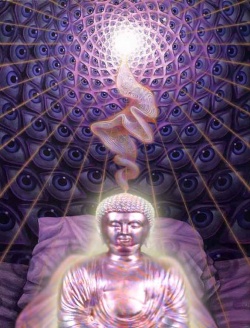Difference between revisions of "Here is your short essay on the Abhiras"
| Line 1: | Line 1: | ||
[[File:150f55 n.jpg|thumb|250px|]] | [[File:150f55 n.jpg|thumb|250px|]] | ||
| − | On the downfall of the [[Satavahanas]], the [[Abhira]] [[Ishvarasena]] established himself in Northern | + | On the downfall of the [[Satavahanas]], the [[Abhira]] [[Ishvarasena]] established himself in [[Northern Maharashtra]]. |
| − | + | He started an {{Wiki|era}} in AD 249, and it seems that the [[Abhira]] {{Wiki|rule}} spread to parts of Central [[India]], {{Wiki|Gujarat}} and [[Konkan]]. | |
| − | + | According to the {{Wiki|Puranas}}, there were ten [[Abhira]] [[kings]], but no other [[name]] is definitely known to us. | |
| − | The [[Shakas of Mahishaka]] Another family which rose to power in the Deccan after the [[Satavahanas]] was the [[Shaka]] family. Its progenitor was the [[Shaka]] [[king]] [[Mana]] whose {{Wiki|copper}} and lead coins have been found in the [[Andhra Pradesh]]. The family of [[Shaka Mana]] was connected with the Kshaharata family of Bhumaka and Nahapana. | + | From an inscription it seems that [[Kathika]] was the family [[name]] of the [[Abhiras]]. |
| + | |||
| + | The {{Wiki|Puranas}} assign a period of only 67 years to the ten [[Abhira kings]]. | ||
| + | |||
| + | However, the correct period seems to have been 167 years. [[Abhira]] {{Wiki|rule}} seems to have ended in AD 417. | ||
| + | |||
| + | The {{Wiki|era}} founded by the [[Abhira king]] [[Ishvarasena]] is known as [[Kalachuri-chedi]] {{Wiki|era}} or [[Abhira era]]. | ||
| + | |||
| + | Many grants were issued from a place called [[Valkha]] which appears to have been the capital of the [[Abhiras]], the last [[king]] of which got excavated the magnificent [[Ajanta Cave]] XVII, which now has more paintings than any other single [[cave at Ajanta]]. | ||
| + | |||
| + | |||
| + | The [[Shakas of Mahishaka]] | ||
| + | |||
| + | |||
| + | Another family which rose to power in the [[Deccan]] after the [[Satavahanas]] was the [[Shaka]] family. | ||
| + | |||
| + | Its progenitor was the [[Shaka]] [[king]] [[Mana]] whose {{Wiki|copper}} and lead coins have been found in the [[Andhra Pradesh]]. | ||
| + | |||
| + | The family of [[Shaka Mana]] was connected with the [[Kshaharata]] family of [[Bhumaka]] and [[Nahapana]]. | ||
{{R}} | {{R}} | ||
[http://riseofhindustan.blogspot.com.au/2012/03/history-of-ror-caste.html riseofhindustan.blogspot.com.au] | [http://riseofhindustan.blogspot.com.au/2012/03/history-of-ror-caste.html riseofhindustan.blogspot.com.au] | ||
[[Category:India]] | [[Category:India]] | ||
Latest revision as of 20:12, 23 March 2015
On the downfall of the Satavahanas, the Abhira Ishvarasena established himself in Northern Maharashtra.
He started an era in AD 249, and it seems that the Abhira rule spread to parts of Central India, Gujarat and Konkan.
According to the Puranas, there were ten Abhira kings, but no other name is definitely known to us.
From an inscription it seems that Kathika was the family name of the Abhiras.
The Puranas assign a period of only 67 years to the ten Abhira kings.
However, the correct period seems to have been 167 years. Abhira rule seems to have ended in AD 417.
The era founded by the Abhira king Ishvarasena is known as Kalachuri-chedi era or Abhira era.
Many grants were issued from a place called Valkha which appears to have been the capital of the Abhiras, the last king of which got excavated the magnificent Ajanta Cave XVII, which now has more paintings than any other single cave at Ajanta.
Another family which rose to power in the Deccan after the Satavahanas was the Shaka family.
Its progenitor was the Shaka king Mana whose copper and lead coins have been found in the Andhra Pradesh.
The family of Shaka Mana was connected with the Kshaharata family of Bhumaka and Nahapana.
